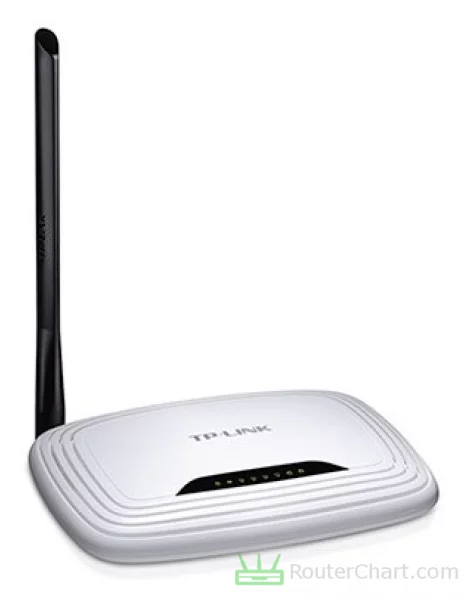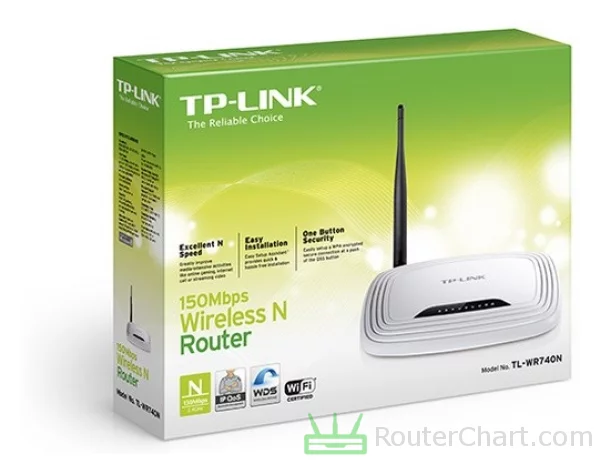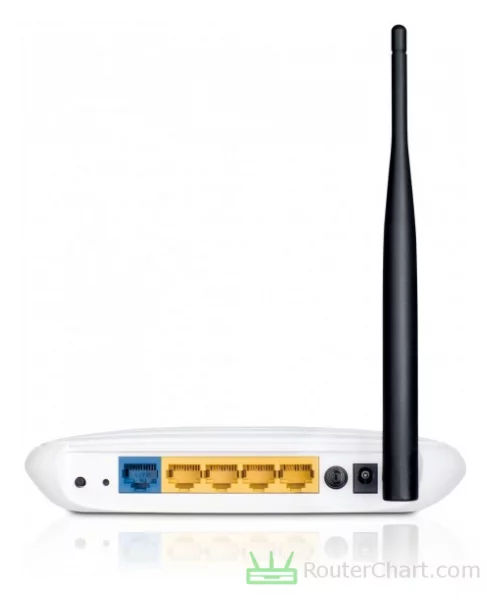TP-Link TL-WR740N router review
The TP-Link TL-WR740N (TL-WR740N) router released in 2009. It is powered by Atheros AR7240 @ 400 MHz chipset, 32 MB of RAM and 4 MB of flash. The N150 router is compatible with IEEE 802.11b/g/n standards, and the maximum speed that you can get with TL-WR740N is 150 Mbps. The router has 1 x 10/100 Mbps WAN and 4 x 10/100 Mbps LAN ports.
Table of Contents
Our personal experiences and opinions form the basis of this article. We aimed to share insights on a topic, and we hoped others would find it useful and inspirational. The specs below rely on official manufacturer data, but we also consider user reviews. If you noticed any mistakes or missing details about the TP-Link TL-WR740N, please let us know. Furthermore, we strive to deliver a thorough and precise overview.

The TL-WR740N router operates on the 2.4 GHz frequency band. It offers decent wireless coverage and works with many devices. TP-Link has received recognition and awards for their networking products.
TP-Link TL-WR740N specifications
| Brand | TP-Link |
|---|---|
| Name | TL-WR740N |
| Type | TL-WR740N |
| Rating | |
| Launch | 2009 |
Body
| Dimensions | 174 x 118 x 33 mm |
|---|
The dimensions and design of a router can impact its cooling capabilities. Routers with larger dimensions may have more space for internal cooling mechanisms.
System
| Chipset | Atheros AR7240 @ 400 MHz |
|---|---|
| RAM | 32 MB |
| Flash | 4 MB |
| OS | TP-Link |
| Alternative OS | OpenWRT DD-WRT |
| Power supply | 5 V / 0.6 A |
The TP-Link TL-WR740N router has a Atheros AR7240 @ 400 MHz processor. The 32 MB of RAM enables the router to handle multiple tasks and processes concurrently. Flash memory retains its data even when the router is off. This allows the router to keep its firmware and settings across reboots. TP-Link often releases firmware updates. They improve the router's features, security, and bugs. They also add new features.
Using a custom OS on a router has benefits. But, it also has risks. OpenWrt is an open-source operating system. It provides customizable firmware for embedded devices, like routers and access points. The 5 V / 0.6 A PSU provides power to the router. If it breaks, you can replace it with a new one.

Network
| Protocols | IPv4 |
|---|---|
| LAN ports | 4 x 10/100 Mbps |
| WAN ports | 1 x 10/100 Mbps |
| Mobile network | no |
| VPN support | no |
Like many modern routers, the TP-Link TL-WR740N supports many features and tech. They improve your network's connectivity and security. The IPv4 is the fourth iteration of the Internet Protocol (IP). It is the most widely used version of IP on the internet today. The WAN port on the TL-WR740N router is a Fast Ethernet port, not a Gigabit Ethernet.
Wireless
| Antennas | 1 x 5 dBi fixed |
|---|---|
| 2.4 GHz | yes |
| 5 GHz | no |
| 60 GHz | no |
| Standards | IEEE 802.11b/g/n |
| Class | N150 |
| Speed | 150 Mbps |
| Transmit power | 20 dBm |
| Security | WEP WPA WPA2 |
| Guest network | no |
This router has 1 x 5 dBi, fixed antennas. Antennas are key parts of wireless routers. They send and receive radio signals to make wireless connections. The router supports the 2.4 GHz Wi-Fi. This is a Wi-Fi 4 (802.11n) router. Wi-Fi 4 improved the range and coverage compared to previous Wi-Fi standards.. The top speed, 150 Mbps, is the highest data rate the router can reach. It's the theoretical limit in perfect conditions.
WEP was the first Wi-Fi security protocol. But it is now seen as weak and easy to hack. The introduction of WPA2 (Wi-Fi Protected Access 2) improved upon WEP. It provides stronger security.

Connectivity
| USB ports | no |
|---|---|
| Print server | no |
| File server | no |
The TL-WR740N router doesn't have file-server or print-server functionality.
Administration
| Default IP | 192.168.0.1 |
|---|---|
| Default username | admin |
| Default password | admin |
Changing the password often is a good security practice. It protects your network and devices from unauthorized access. Changing the default password improves your router's security. It reduces the risk of unauthorized individuals controlling your network.
Pros and Cons
Every router, including this TP-Link one, has its good sides and not-so-good sides. Let's take a closer look at both to get a full understanding of what this router can do. We'll talk about what it does well and also where it could use some improvements. Just remember, this is just what I think, and you might see things differently.
Pros
- OpenWrt compatible
Cons
- insufficient flash
- lack of Gigabit LAN
- Non-gigabit WAN port
- missing Wi-Fi 6 support
- lacks Wi-Fi 5 compatibility
- reduced Wi-Fi bandwidth
- incompatible with WPA3
- missing WPS support
- no USB connectivity
TP-Link TL-WR740N photos




If there’s information about the TP-Link TL-WR740N that you would like to see on this site, then write to us.

